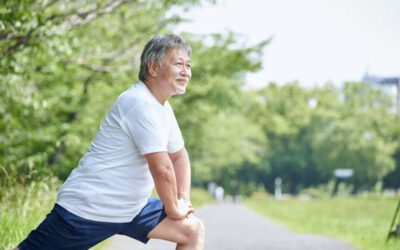BLOG
Most Popular Posts
Exploring Tai Chi for Seniors: A Mind-Body Exercise for Wellness
Tai Chi, often referred to as “meditation in motion,” is a centuries-old Chinese martial art known for its slow, graceful movements and deep focus on breathing. As a practice that emphasizes balance, flexibility, and mental clarity, Tai Chi has gained popularity among seniors seeking to enhance their overall well-being. Its low-impact nature accommodates a wide range of physical abilities, making it an ideal form of exercise for individuals looking to improve their health without the strain that comes with more rigorous workouts. This gentle practice fosters physical strength and nurtures a sense of inner peace, contributing to a vibrant and fulfilling lifestyle in the golden years.
How Physical Activity Strengthens Mental Health in Seniors
Maintaining physical and mental health is crucial at any stage of life, but it becomes particularly important as we age. Regular physical activity has proven benefits for seniors, not just for the body but also for the mind.
Navigating Diabetes: How Physical Therapy Can Help Seniors
Diabetes is a prevalent health condition that affects millions of seniors worldwide. Managing the disease requires a comprehensive approach that goes beyond medication and diet. Physical therapy, often overlooked, plays a significant role in managing diabetes by addressing its physical complications and enhancing overall quality of life.
Stay Active, Stay Strong: A Senior’s Guide To Strength Training
As we age, maintaining physical strength and overall health becomes increasingly important. For seniors, regular, gentle strength training is one of the most effective ways to enhance mobility, improve balance, and maintain independence. Unlike high-intensity workouts, which may not suit everyone, especially older adults, gentle strength training focuses on low-impact exercises that build muscle strength, increase bone density, and promote overall well-being without the risk of injury.
Holistic Approaches to Senior Wellness: Mind, Body, and Spirit
As the global population ages, promoting wellness among seniors has become a priority for individuals, families, and healthcare systems alike. While traditional healthcare often focuses on treating symptoms of illness, a holistic approach aims to enhance overall well-being by addressing the mind, body, and spirit. This multidimensional approach supports physical health and nurtures emotional and spiritual fulfillment, ensuring seniors’ higher quality of life.
Senior Nutrition Hacks For Staying Strong, Fit, And Happy
Aging is a natural part of life, and as we grow older, our bodies undergo numerous changes. These changes can affect metabolism, muscle mass, bone density, and energy levels, making proper nutrition more critical than ever. For seniors, a balanced diet is not just about maintaining weight or avoiding illness—it’s about fueling the body for an active, fulfilling lifestyle.
The Benefits of Group Exercise Classes for Seniors
As we age, maintaining social connections becomes increasingly important for mental, emotional, and physical well-being. One effective way to cultivate these bonds is through group exercise classes tailored specifically for seniors. These classes offer a dynamic environment where participants can improve their fitness while building meaningful relationships. Let’s explore the profound benefits of group exercise classes and how they enhance community bonds among seniors.
The Impact of Posture on Senior Health and How to Improve It
As we age, maintaining good posture becomes increasingly important for overall health and well-being. How we hold our bodies affects more than just how we look; it profoundly impacts our physical health, mobility, and quality of life. For seniors, poor posture can contribute to pain, balance issues, reduced mobility, and even an increased risk of falls. This blog explores the significant effects of posture on senior health and offers practical strategies to improve it.
Caring for Caregivers: Self-Care Strategies for Those Supporting Seniors
Caring for seniors is an incredibly rewarding yet demanding role. As a caregiver, you provide emotional, physical, and mental support to those who depend on you, often at the expense of your well-being. While the focus typically remains on the care recipient, it’s equally important to prioritize self-care for caregivers. Without proper self-care, the risk of burnout, fatigue, and emotional distress rises significantly.
Living With Parkinson’s: Practical Therapies For Seniors
Parkinson’s disease (PD) is a progressive neurological disorder that primarily affects movement. The journey for seniors diagnosed with this condition can be challenging, but therapeutic approaches can significantly enhance their quality of life. There are ways to manage symptoms and maintain independence, from physical therapy to innovative medical treatments. This blog explores practical therapeutic strategies for seniors coping with PD.









